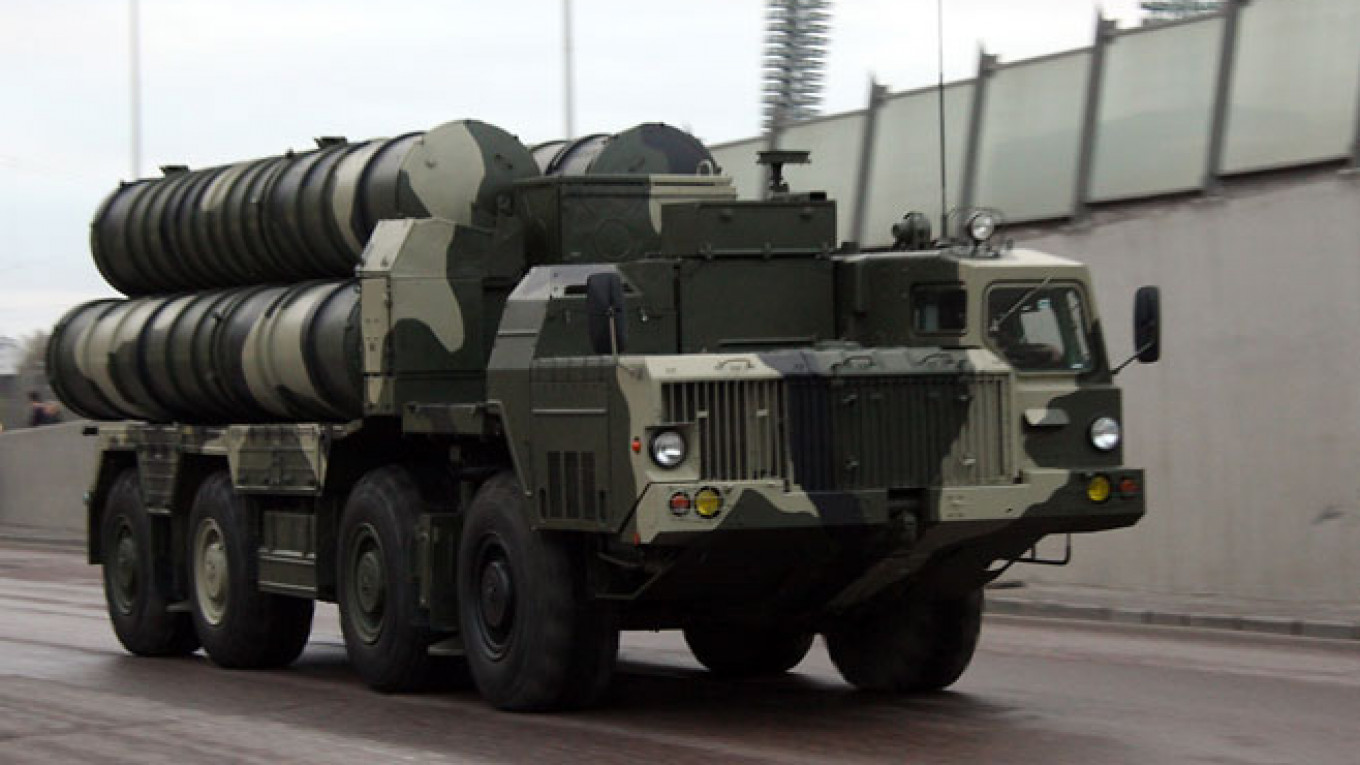Russian officials conceded some problems with supplying S-300 missiles to Iran but maintained the deal was still in place, the Kommersant newspaper reported Wednesday, after a Kuwaiti daily cited an unidentified high-level source as saying Moscow has decided to suspend shipments.
Both Kremlin spokesman Dmitry Peskov, and a spokesperson for Russian arms exporter Rosoboronexport declined to comment on the Kuwaiti report, Kommersant reported. But several unidentified officials “in the military-technological cooperation sphere” said the contract remained in effect and Russia had no plans to cancel it, Kommersant said.
Deliveries of the S-300 anti-aircraft missiles to Iran have, however, hit some snags over payment issues, unidentified Russian officials conceded, Kommersant reported.
A contract, reached last November, called for Iran to pay about $1 billion in several installments, and envisaged the first shipments of S-300 missiles as early as February, to be followed by two more later this year, Kommersant reported.
But recalling that Russia had annulled a previous, 2007 contract for supplies of S-300 missiles, Iran sought a reduction to its installment payments — to avoid having Iranian money languishing in Russian coffers should Moscow decide to renege on the latest deal, an official was quoted as saying.
The annulment in 2010 of the 2007 contract came amid global sanctions against Tehran, and was widely seen as Moscow's friendly gesture toward the West, which was concerned about Tehran's military ambitions and nuclear weapons program.
Moscow refunded advance payments on the $800 million deal to Iran, but Tehran tried to sue for contract breach, agreeing to drop the suit only after “long and tough negotiations,” in the words of Russian Deputy Prime Minister Dmitry Rogozin, The Times of Israel reported.
Russian President Vladimir Putin lifted the self-imposed Russian ban in April 2015, against U.S. and Israeli objections, and his government concluded the new deal in November.
Kuwaiti daily Al-Jarida claimed this month that deliveries under the November contract have also been suspended.
The newspaper cited an unidentified high-level source as saying Putin had agreed to stop the deal after Israeli officials presented him with proof that on several occasions, Iran had transferred Russian-made SA-22 surface-to-air missiles to Lebanon-based Hezbollah — a group designated as a terrorist organization by a number of Western countries.
Russian pilots flying missions over Syria have also reported radar readings detecting advanced surface-to-air systems in Hezbollah-controlled areas along the Lebanese-Syrian border, Al-Jarida reported. Lebanon has also confirmed the accounts, the report said.
Russia does not view Hezbollah as a terrorist group. Russian Deputy Foreign Minister Mikhail Bogdanov said in November 2015 that the Lebanese group, as well as Hamas, never committed any terror attacks on Russian soil, and was a “legitimate public and political force,” the state-run Interfax news agency reported.
Meanwhile, Russia designates Syria's Nusra Front and Islamic State as terrorist organizations, and requires local media reports that mention the latter to add a caveat: “The Islamic State is a terrorist organization banned in Russia.”
Contact the author at [email protected]
A Message from The Moscow Times:
Dear readers,
We are facing unprecedented challenges. Russia's Prosecutor General's Office has designated The Moscow Times as an "undesirable" organization, criminalizing our work and putting our staff at risk of prosecution. This follows our earlier unjust labeling as a "foreign agent."
These actions are direct attempts to silence independent journalism in Russia. The authorities claim our work "discredits the decisions of the Russian leadership." We see things differently: we strive to provide accurate, unbiased reporting on Russia.
We, the journalists of The Moscow Times, refuse to be silenced. But to continue our work, we need your help.
Your support, no matter how small, makes a world of difference. If you can, please support us monthly starting from just $2. It's quick to set up, and every contribution makes a significant impact.
By supporting The Moscow Times, you're defending open, independent journalism in the face of repression. Thank you for standing with us.
Remind me later.


